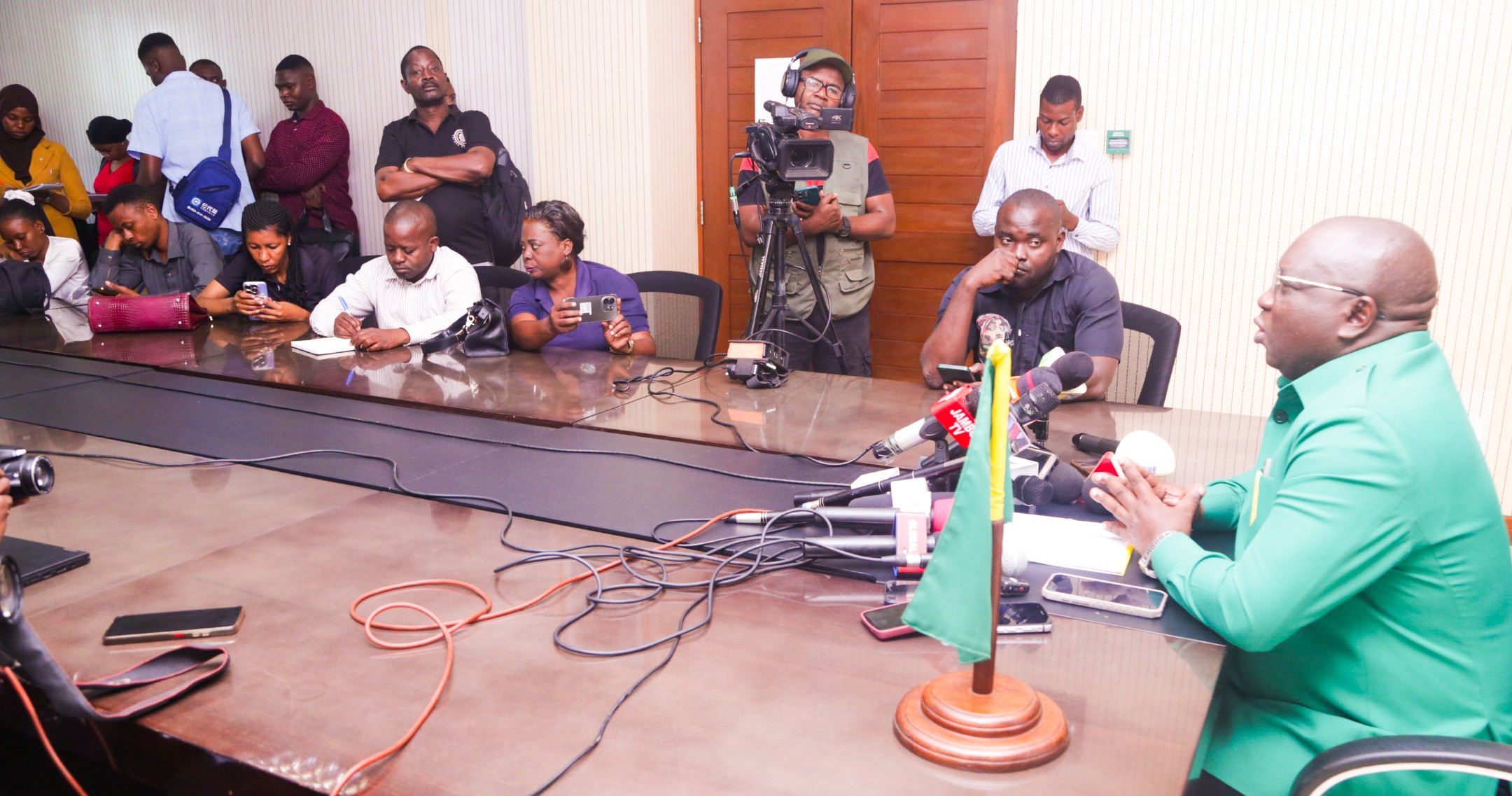Tanzania signs Sh375 billion deal with AfDB for hydropower project

Finance minister Dr Mwigulu Nchemba exchanges documents with AFDB's country manager for Tanzania Dr Patricia Laverley after signing a Sh374 billion loan agreement in Dar es Salaam.
Dar es Salaam. Tanzania on Wednesday March 15, signed a loan agreement with African Development Bank (AfDB) amounting to $161.47 million (about Sh374.9 billion) as part of the money for financing the Kagera-based Kakono Hydropower Project.
Alongside with the AfDB, the 87.8 MW project, whose total cost stands at over Sh700 billion, is also financed by the AFD---the French Development Agency, and European Union (EU).
Speaking during the signing ceremony, Finance and Planning minister Mwigulu Nchemba said yesterday’s new development came just a week after the government signed an agreement with the AFD on its portion amounting to 110 million euros (about Sh272.6 billion).
The remaining portion not signed out of the total project cost is the 35 million euros (Sh86.7 billion) grant from the EU to be administered by AFD.
“Following this important milestone, I request the grant arrangement between AFD and EU to be expedited in order to have the full package of financing ready for the project,” asserted Dr Nchemba.
He underscored that the overall development objective of the Kakono Hydropower Project is to increase on-grid energy production from least-cost renewable sources to address electricity deficits in north-western Tanzania. The development of the project will displace the use of fossil fuels in the north-western corner of Tanzania in the Lake Zone, where costly diesel power generators are often brought online to either supplement the grid supply or improve the quality of supply to avoid prolonged blackouts and brownouts, he added.
According to Dr Nchemba, the project will be completed in five years. It will involve a construction of 87.8MW hydropower plant and other works including a primary school and a health centre in addition to a 28 km long asphalted access road integrated in the Project. This, he expounded, will culminate in the improvement in the living standard of the communities around there.
The project, he added, also involves the supply of evacuation facilities and implementation of the environmental and social management and monitoring plan The Kakono Hydropower Project is in line with the country’s Third Five Year Development Plan (FYDP III) and part of the broad agenda of the Sixth Phase Government.
The targeted goal is to build a competitive and industrial economy for Human Development through improving productive infrastructures, reliable access to energy, strengthening the business and investment enabling environment as well as education and training systems.
AfDB country manager for Tanzania Patricia Laverley said the Kakono Power Plant is set to increase energy production that will eventually address electricity deficit.
“It (the project) will help to improve the quality of electricity supply,” Dr Laverley exuded her optimism. This in turn, will help to build a competitive and industrial economy for human development through reliable access to energy.
AFD country director for Tanzania Céline Robert said the signing ceremony marks a new milestone in the important work and effort of the government to achieve its 2025 Vision for the energy sector.
“Through the construction of a hydropower plant of almost 88MW and its associated infrastructures, the project will significantly increase the renewable generation capacity of the country and contribute to the government’s aim to generate 5 gigawatt (GW) of electricity by 2025,” said Ms Robert.
She went on to add: “This new run-off-the river power station and the related improvement of the grid will foster economic development in the Kagera Region and will pave a way for the Tanzania-Uganda interconnector.”
She went further saying, upon its completion, the power plant will answer the needs of the equivalent of 3 to 4 million people.
At the same time, added Ms Robert, it will participate in the energy transition of the country by reducing carbon intensity of the power sector.
Delegation of the EU to Tanzania head of cooperation Cedric Merel said their Sh86.7 billion in grants contribution illustrates the EU deal and the Global Gateway which is its strategies to promote renewable energies and invest in key strategic infrastructures in partner countries.
Mr Merel said the EU ongoing support to the energy sector in Tanzania is considerable with about Sh450 billion invested at macro and micro levels.
The money has been of paramount importance in supporting the energy sector reforms, energy efficiency, clean cooking, rural electrification and investments and support to the private sector.




